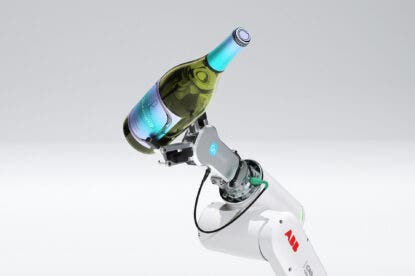SPONSORED
ForceBrands Decanter: Opening Up the Conversation
ForceBrands is the consumer product industry’s leading recruiting firm. Each month, the company’s leading recruiters and strategists share insider advice and insights about the wine world.
Brett Medina is a Senior Client Strategist at ForceBrands who strategically matches top talent with alcoholic beverage companies to help grow and scale their businesses. He takes pride in helping his clients achieve their business goals in a challenging job market. With unemployment at an all-time low, he helps brands in the highly specialized wine industry navigate a finite candidate pool. Read on to learn about how companies can stand out among the competition to attract top talent.
ForceBrands: What challenges does the low unemployment rate pose to the wine industry?
Brett Medina: The candidate pools are moving a lot faster now. In the past, someone might be interviewing for 1-3 roles but now they’re being approached for a lot more opportunities. Employers are moving much faster now, too, to hire the right people, and if you’re not moving as quickly as them, you’re likely going to miss out on the right talent.
FB: Are there any wine roles in particular that are more difficult to fill given the finite amount of candidates right now?
BM: Right now, the most challenging positions – the most in demand roles – are on-premise opportunities. It’s a smaller pool of candidates. You need people who have the right relationships with managers, food and beverage directors, etc. These people tend to move around pretty quickly, too, and they tend to bring their wine business with them.
FB: What kinds of qualities should wine brands have to help attract top talent?
BM: Right now, it’s important for brands to have a compelling story within a relevant category. Brand connection is important. As the job market gets tighter, people want to work with a brand that has a history or a brand story that resonates with them because that’s how they’re going to sell it. Aside from a great story, wine brands should have compelling products that keep people – not just consumers but retailers and distributors – engaged. It’s important for companies to be forward thinking and to have relevant products within emerging parts of the industry. A lot of candidates are hesitant to move from a very hot category (think rosé) to a category that’s plateaued because that relevancy is what makes the company so attractive to distributors within the industry.
FB: What are some of the important things companies can do to win over a candidate?
BM: Compensation is always important. It’s not everything but with unemployment being so low and candidates fielding so many conversations, people are rarely willing to take a pay cut or make a lateral move. People want to feel like they’re valued and compensation certainly helps with that. The second component to feeling valued as an employee is through perks and benefits like health insurance. People have turned down great job offers in the past because of increased health insurance costs. As far as other perks, people are becoming a lot more self-aware when it comes to PTO and work-life balance. Employers should be respectful of this in order to win over candidates.
FB: Have you seen any wine brands who are doing a great job at differentiating themselves from the rest in terms of hiring strategies?
BM: What’s really stood out to me is a lot of family owned wineries and larger organizations across the country are being mindful of work-life balance. They’re more attractive to candidates as a result. Things like tuition reimbursements are starting to go a long way especially as things are becoming more digital and specialized, and thus may require additional training. Employees want to make sure they have the skills necessary to grow so they’re going back to school. It’s reassuring to them if their organization financially supports these endeavors.
FB: On the candidate side, what advice would you give to talent looking to stand out in the competitive job market?
BM: Be a strong communicator and not just over the phone. Sales and marketing people are naturally really good at selling themselves but now more communication is being handled digitally. When you’re writing an email, make sure your grammar is correct. Send thank you notes – you’d be surprised how many people don’t move forward with a candidate because they never followed up with a simple thank you note. Having a well structured résumé is important, too. You should be able to quantify your accomplishments in a way that’s meaningful to potential employers. Be mindful that someone will probably look at your résumé for 15-20 seconds and you want them to be able to get it. It needs to be very clear how you’ve been successful, so quantify that in a clean and concise way.
FB: Lastly, what overall trends to you foresee taking shape in terms of future roles within the industry?
BM: I think something we’re starting to see more of is a shift into e-commerce. With new apps like Minibar Delivery, people are gaining more access to products they want when they want them. There is a definitely a surge in demand for the roles that are required to manage these kinds of platforms.
Last Updated: May 4, 2023
















